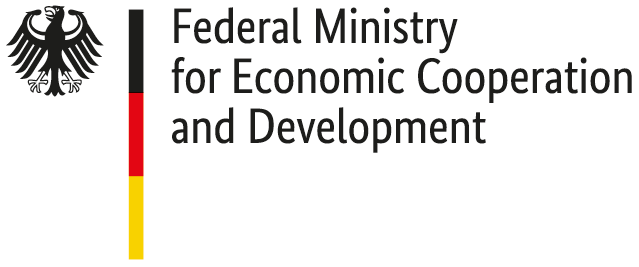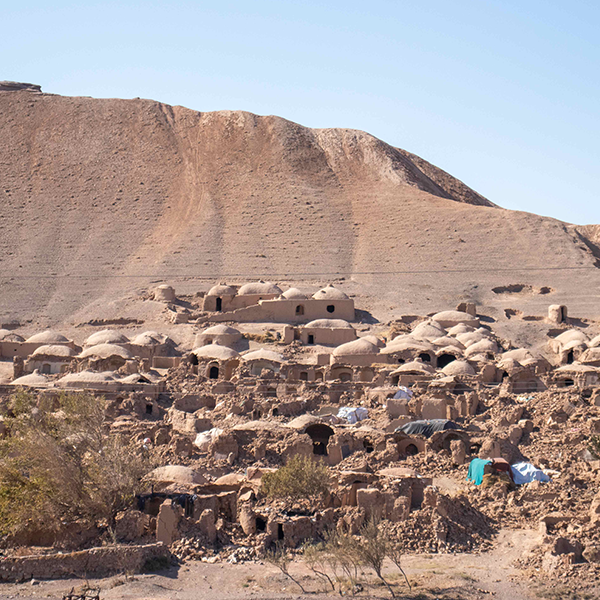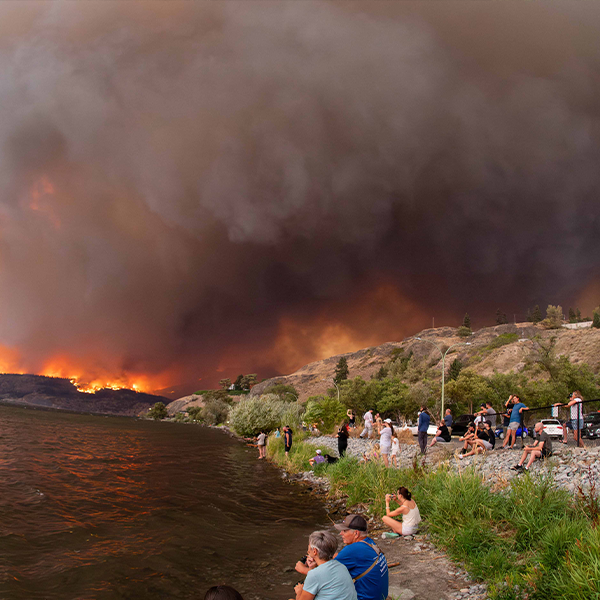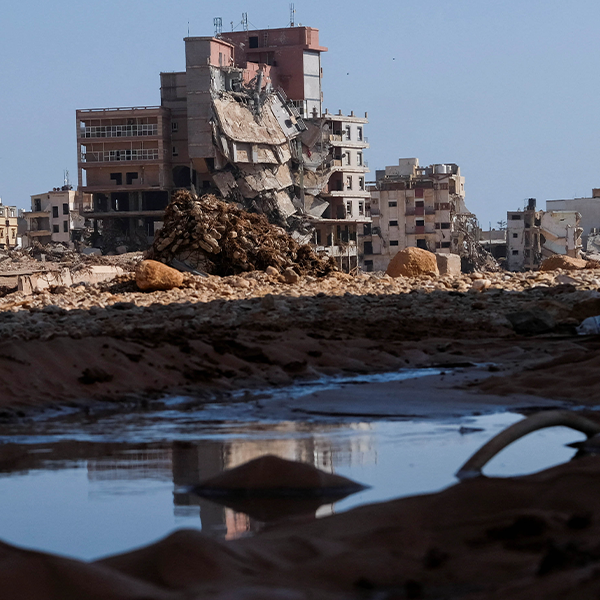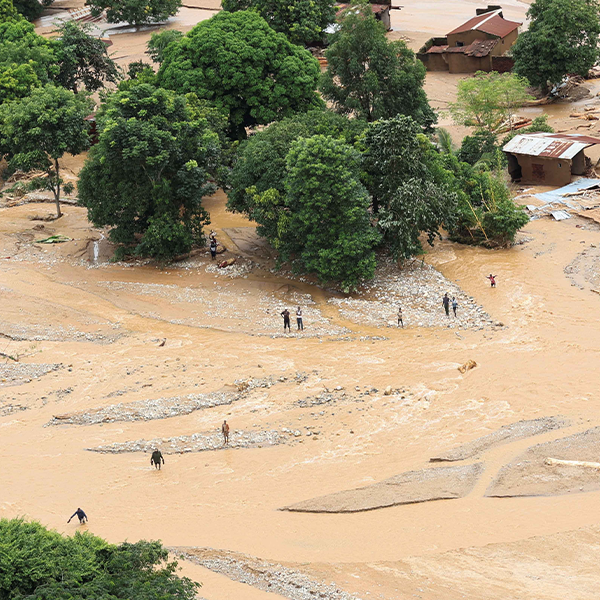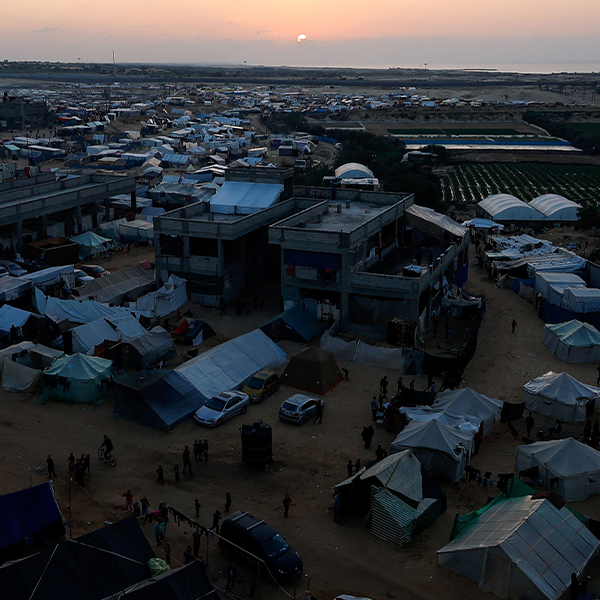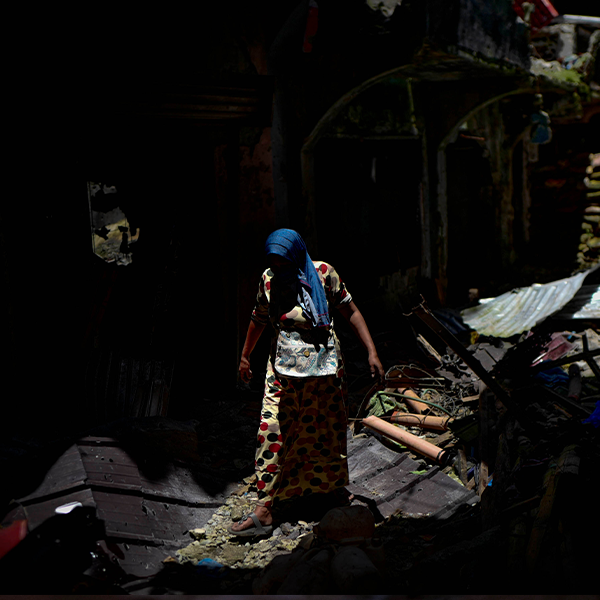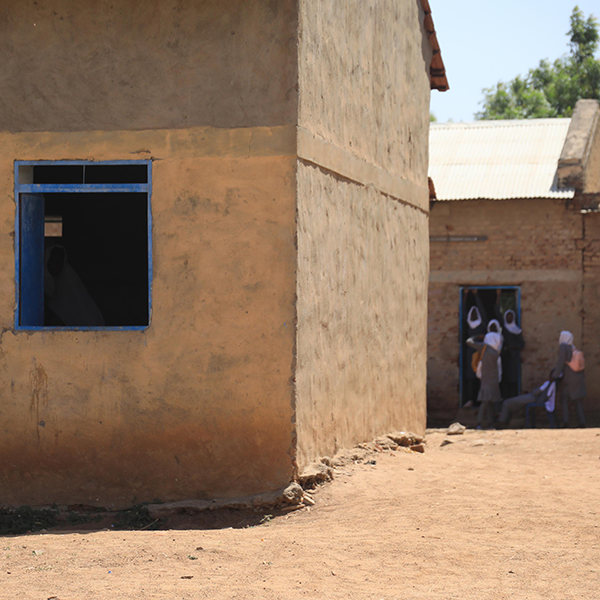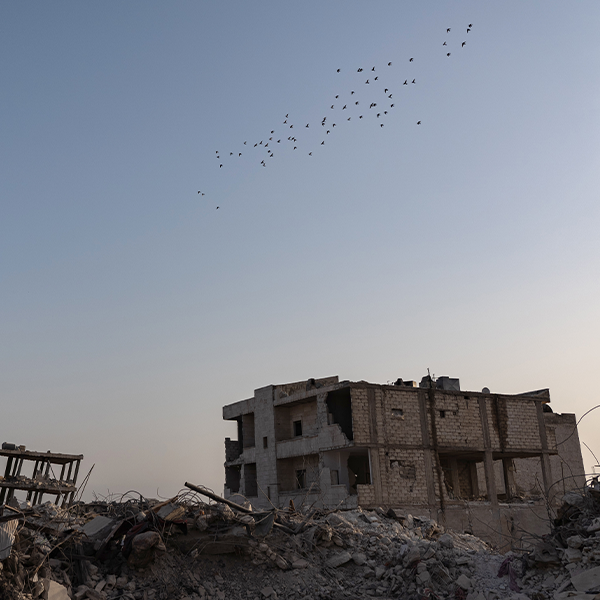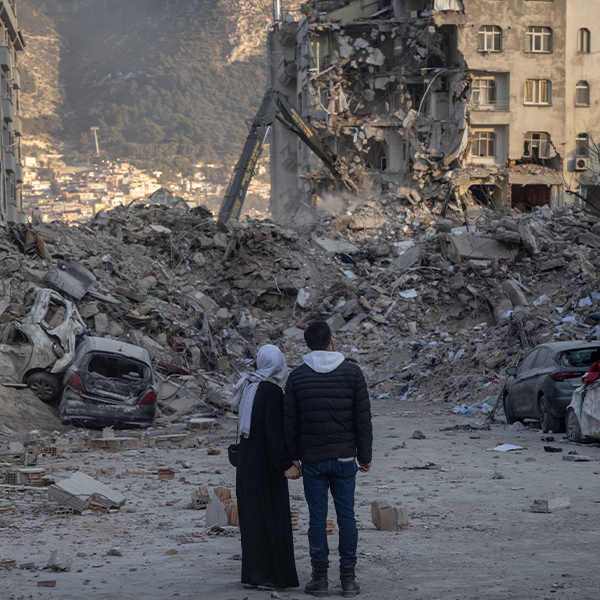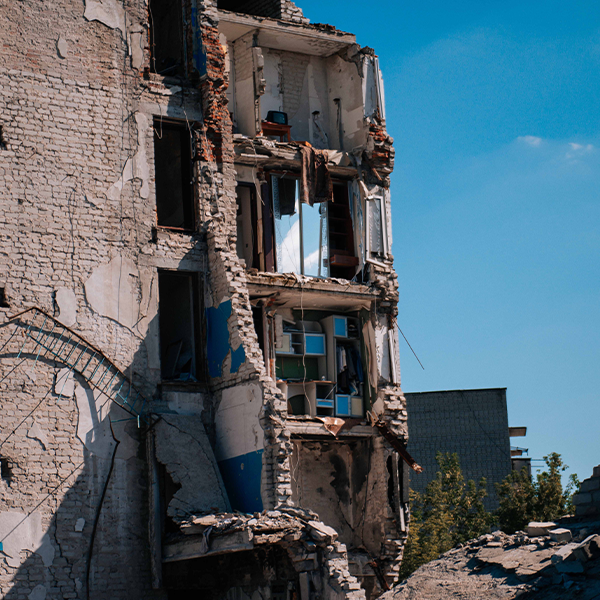The millions of people forced to flee in 2023 were just the ‘tip of the iceberg’, adding to the tens of millions of IDPs already displaced from previous and ongoing conflicts, violence, and disasters.
- Alexandra Bilak, Director, IDMC
The global picture
Internally displaced people (IDPs)
What is the total number of IDPs?

The number of IDPs continues to rise
Why does the number of IDPs keep increasing?
What is needed to reduce the number of IDPs?
IDPs by cause of displacement
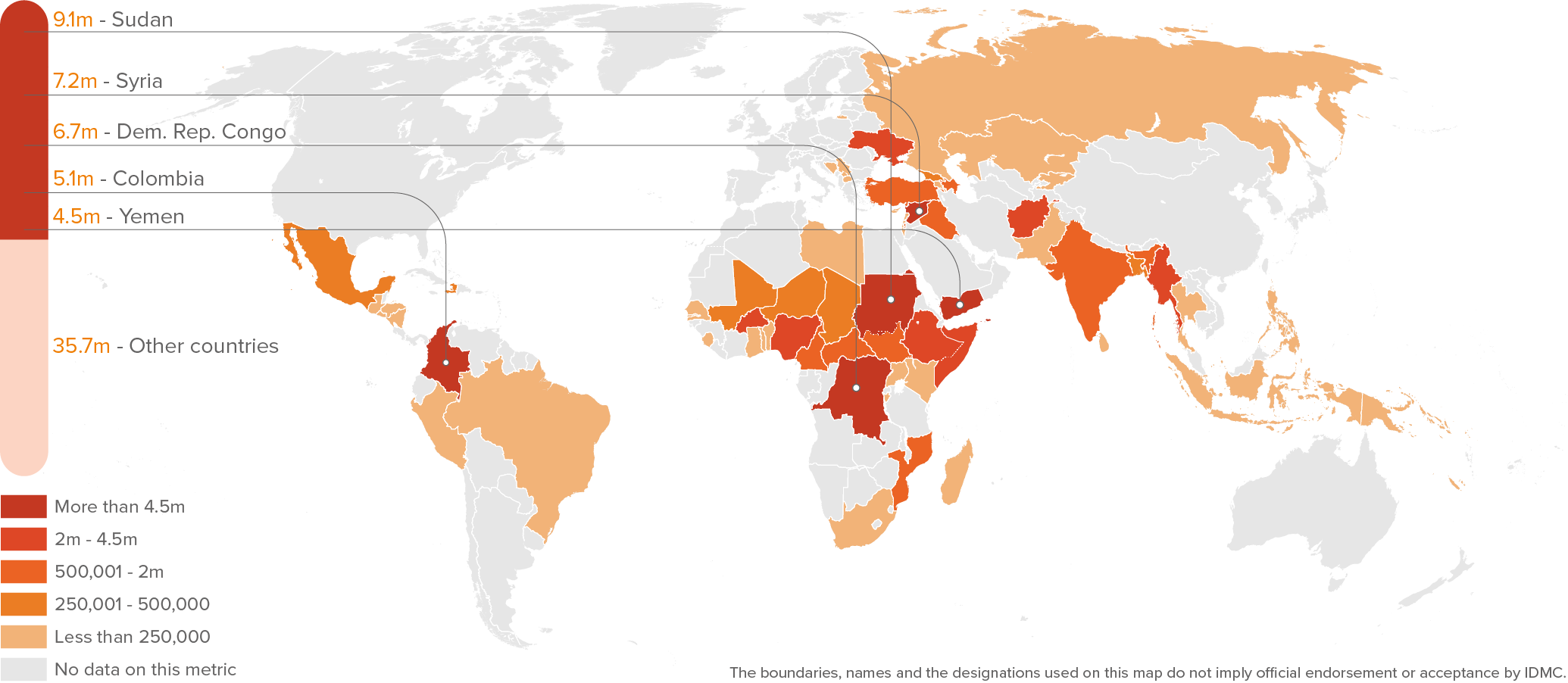
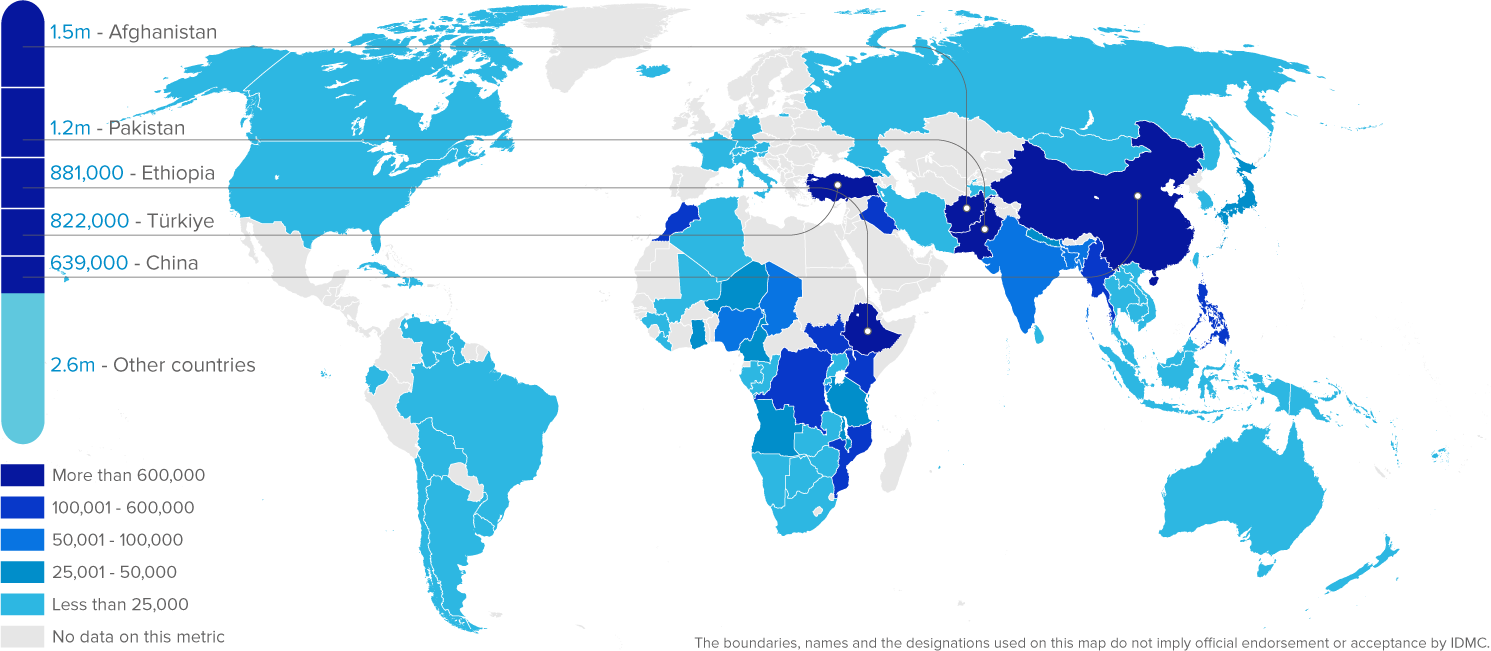
Internal displacements in 2023
What are internal displacements?

Conflict displacement remains high
Key displacement situations
6 million
3.4 million
707,000
What are internal displacements?

Disaster displacement remains high
Key displacement situations
4.7 million
2.9 million
~2/3
Internal displacement can happen anywhere
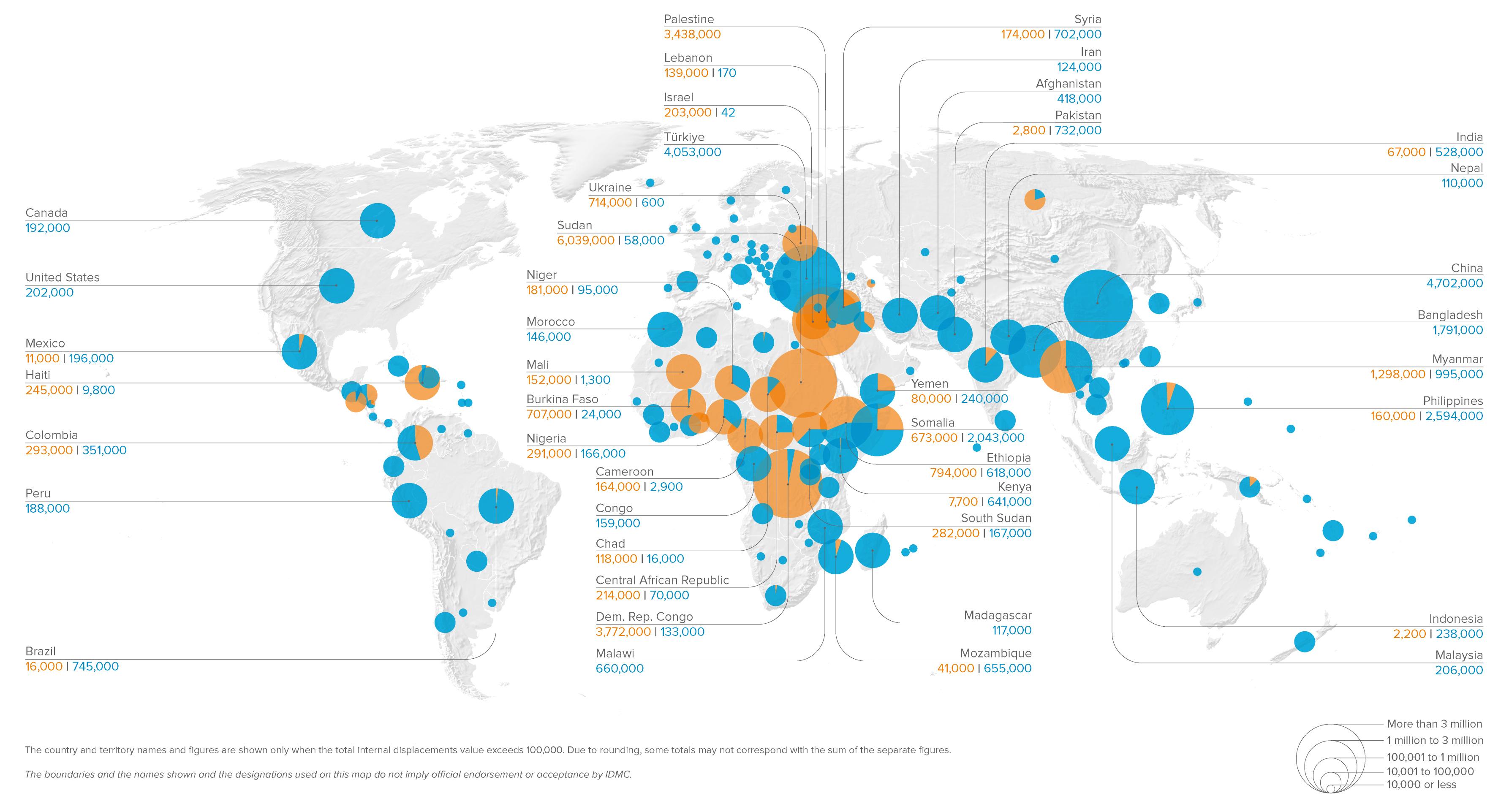
No country is immune to disaster displacement, but we can see a difference in how displacement affects people in countries that prepare and plan for its impacts and those that don’t.
- Alexandra Bilak, Director, IDMC
Regional overviews
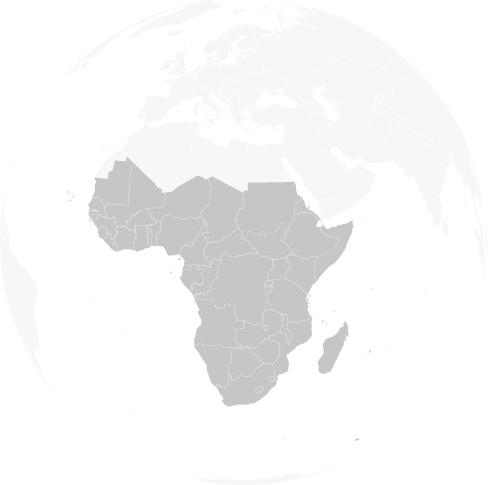
Internally displaced people (IDPs)
IDPs by conflict and violence
IDPs by disasters
Internal displacements (movements)
Internal displacements by conflict and violence
Internal displacements by disasters
Sub-Saharan Africa, which hosts 46 per cent of the world’s IDPs, was again the region most affected by internal displacement in 2023. Conflict and disasters overlapped in many countries, forcing people to flee again and/or prolonging their displacement.
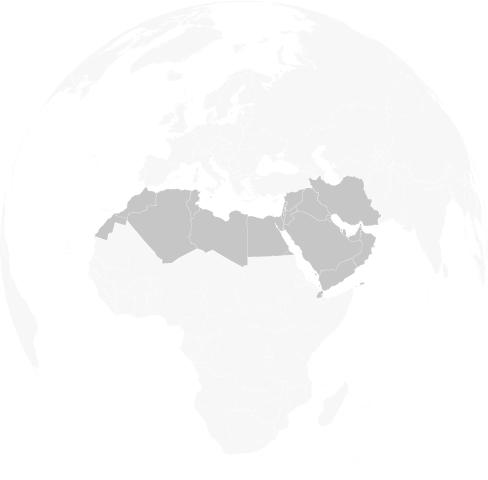
Internally displaced people (IDPs)
IDPs by conflict and violence
IDPs by disasters
Internal displacements (movements)
Internal displacements by conflict and violence
Internal displacements by disasters
The conflict in Palestine contributed to an eight-fold increase in conflict displacements in the Middle East and North Africa in 2023 after three years of consecutive decreases. Disaster displacement figures were also the highest ever reported for the region, largely the result of earthquakes and floods.

Internally displaced people (IDPs)
IDPs by conflict and violence
IDPs by disasters
Internal displacements (movements)
Internal displacements by conflict and violence
Internal displacements by disasters
East Asia and the Pacific recorded the highest number of disaster displacements globally, although the figure was the lowest since 2017. Conflict displacement there increased for the third year running, mostly the result of the situation in Myanmar.

Internally displaced people (IDPs)
IDPs by conflict and violence
IDPs by disasters
Internal displacements (movements)
Internal displacements by conflict and violence
Internal displacements by disasters
Conflict and disasters triggered 47 per cent fewer displacements than the average of the past decade in South Asia, although disasters still uprooted millions of people from their homes.

Internally displaced people (IDPs)
IDPs by conflict and violence
IDPs by disasters
Internal displacements (movements)
Internal displacements by conflict and violence
Internal displacements by disasters
Severe storms in the Americas triggered fewer than half the displacements recorded in 2022 and fewer than a quarter of the annual average since 2015. Conflict and violence triggered the largest number of movements in the region since records began in 2009, with Colombia and Haiti accounting for 85 per cent of the total.

Internally displaced people (IDPs)
IDPs by conflict and violence
IDPs by disasters
Internal displacements (movements)
Internal displacements by conflict and violence
Internal displacements by disasters
Europe and Central Asia recorded by far its highest number of disaster displacements in 2023. The earthquakes in Türkiye accounted for most of them, but wildfire, storm and flood displacements also increased around the Mediterranean basin. Almost all of the conflict displacements recorded in the region were associated with the conflict between Russia and Ukraine.
Country spotlights
Downloads

Launch event
Press pack

Alexandra Bilak
Director, Internal Displacement Monitoring Centre

Jan Egeland
Secretary General, Norwegian Refugee Council (NRC)

Vicente Anzellini
Global and Regional Analysis Manager

Ivana Hajzmanova
Global Monitoring Manager

Christelle Cazabat
Head of Programmes

Alice Baillat
Policy Adviser
With thanks




